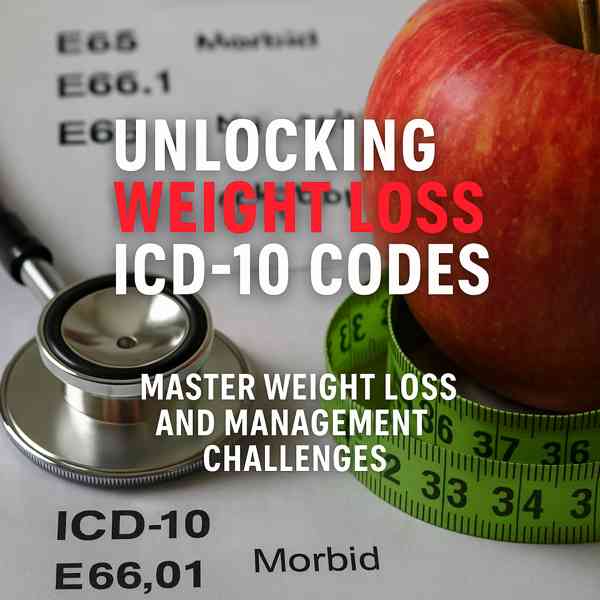ICD-10 Codes for Weight Loss
ICD-10 Codes for Weight Loss
Blog Article

ICD-10 codes help communicate diagnoses effectively, ensuring insurance coverage and proper documentation.
In this article, we’ll break down what ICD-10 codes are used for weight loss, how to apply them, and what you should know for accurate recordkeeping.
Understanding ICD-10 for Weight Loss
It’s a standardized system used worldwide for classifying medical conditions and diseases.
Each diagnosis is assigned a unique code, which is used for:
- Submitting claims to health providers
- Tracking public health trends
- Clinical documentation
ICD-10 Codes for Weight Loss
Weight loss can be intentional or unintentional — and each situation has a specific ICD-10 code.
Key codes include:
- R63.4 – Abnormal Weight Loss
This code applies when a patient loses a significant amount of weight without trying, often due to illness.
- Z71.3 – Dietary Counseling and Surveillance
Often applied in cases involving nutritional intervention or guidance.
- Z72.4 – Inappropriate Diet and Eating Habits
- E66.9 – Obesity, Unspecified
- E43 – Unspecified Severe Protein-Calorie Malnutrition
Clinical Use of R63.4
Use R63.4 when:
- The patient reports significant, unintentional weight loss
- Weight loss is a primary symptom in evaluation
- Additional testing is required to rule out causes
Tips for Correct ICD-10 Weight Loss Usage
To avoid claim denials or coding errors:
- Always specify if weight loss is intentional or not
- Include context like depression, cancer, or malabsorption
- Use supplemental Z-codes for counseling or screenings
- Avoid using obesity and weight loss codes together unless clinically justified
ICD-10 for Weight Management Programs
If you’re coding for a structured weight loss program or health coaching, consider using these Z-codes:
- For nutrition-based support
- Z76.89 – Person Encountering Health Services for Other Reasons
- Z13.21 – Encounter for Nutritional Screening
These codes can support insurance check here claims for wellness, prevention, and obesity treatment plans.
Ensure Documentation is Clear and Compliant
Whether you’re coding for unintentional weight loss or part of a managed care plan, accuracy matters.
To summarize:
- Most common diagnosis for unknown causes
- Z-codes = Counseling, prevention, and health maintenance
- E-codes = Nutritional or medical malnutrition
Always consult coding guidelines and payer policies when applying ICD-10 codes. Report this page